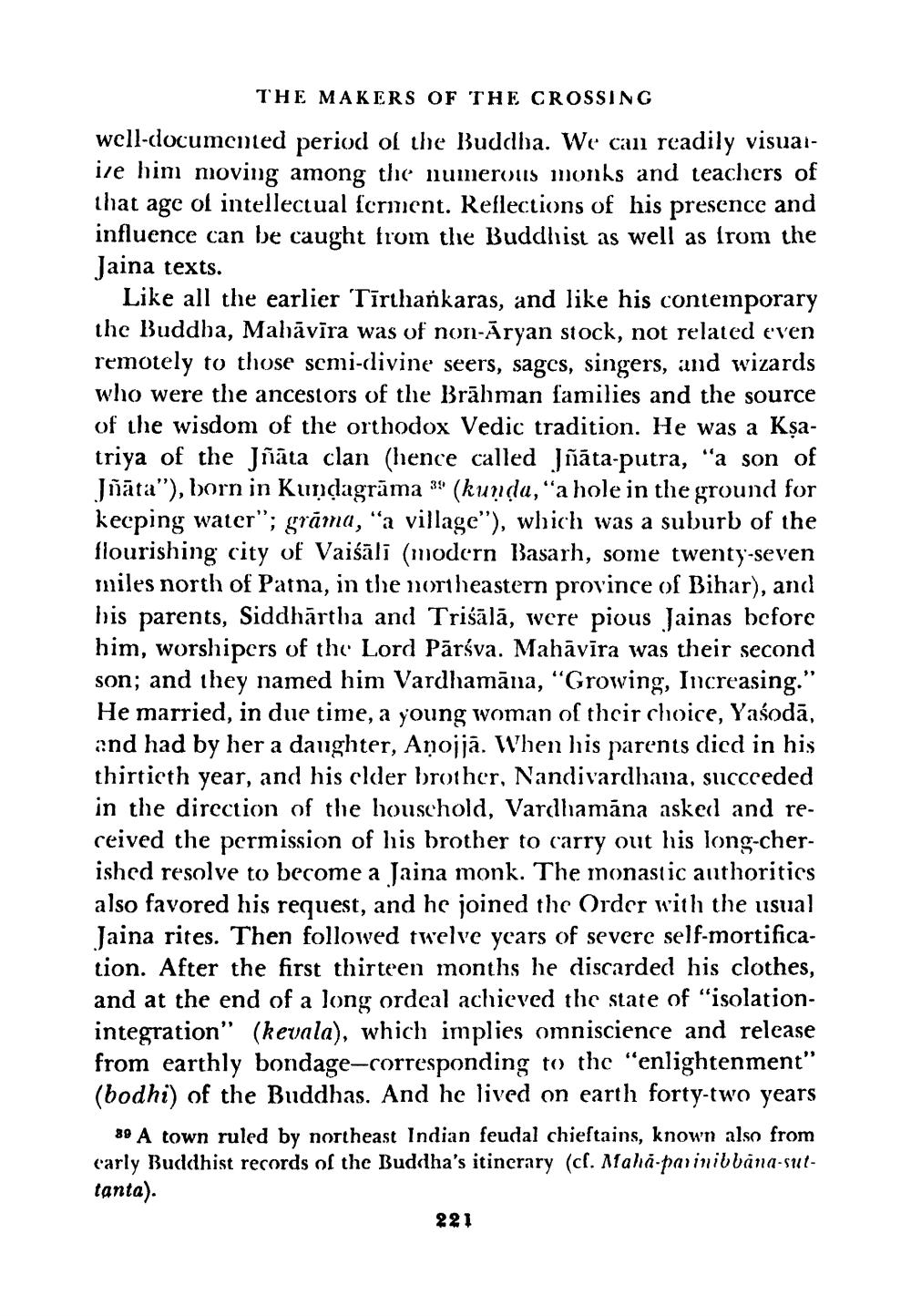________________
THE MAKERS OF THE CROSSING well-documented period of the Buddha. We can readily visualive him moving among the numerous monks and teachers of that age of intellectual ferment. Reflections of his presence and influence can be caught from the Buddhist as well as from the Jaina texts.
Like all the earlier Tīrthankaras, and like his contemporary the Buddha, Mahāvīra was of non-Aryan stock, not related even remotely to those semi-divine seers, sages, singers, and wizards who were the ancestors of the Brāhman families and the source of the wisdom of the orthodox Vedic tradition. He was a Kșatriya of the Jñāta clan (hence called Jñāta-putra, "a son of Jnāta"), born in Kundagrāma 3' (kunda, "a hole in the ground for kecping water"; grāma, "a village"), which was a suburb of the flourishing city of Vaiśāli (modern Basarh, some twenty-seven miles north of Patna, in the northeastern province of Bihar), and his parents, Siddhārtha and Triśālā, were pious Jainas before him, worshipers of the Lord Pārśva. Mahāvīra was their second son; and they named him Vardhamāna, "Growing, Increasing." He married, in due time, a young woman of their choice, Yasodā, and had by her a daughter, Aņojjā. When his parents died in his thirticth year, and his clder brother, Nandivardhana, succeeded in the direction of the household, Vardhamāna asked and received the permission of his brother to carry out his long-cherished resolve to become a Jaina monk. The monastic authoritics also favored his request, and he joined the Order with the usual Jaina rites. Then followed twelve years of severe self-mortification. After the first thirteen months he discarded his clothes, and at the end of a long ordeal achieved the state of "isolationintegration” (kevala), which implies omniscience and release from earthly bondage-corresponding to the "enlightenment” (bodhi) of the Buddhas. And he lived on earth forty-two years
89 A town ruled by northeast Indian feudal chieftains, known also from carly Buddhist records of the Buddha's itinerary (cf. Mfaha-parinibbana-suttanta).
221




